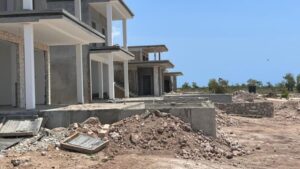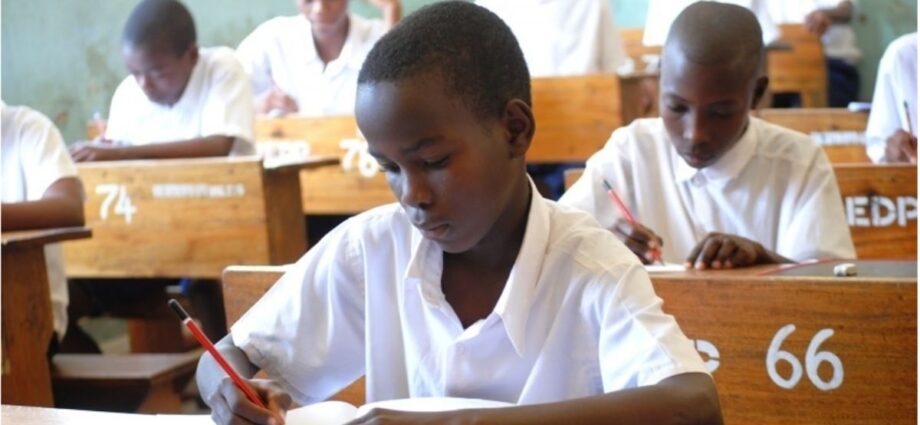Opinion by Charles Makakala
Education is important. But this is absurd. I appeal to the ministry to put an end to this insanity. Children should not be robbed of their childhood because adults have failed to imagine how to educate them properly.
No nation has ever progressed without improving the quality of its educational system. Given Tanzania’s devil-may-care attitude towards education, it is apparent that the country is a long way from progress.
We play so many games when it comes to education. I got reminded of one such game this week when my 11-year-old daughter returned home from school at 8.30pm. She collapsed on the couch and passed out in no time.
I have seen that many times.
Given that her classes begin at 6.30am and conclude at 8pm, she has to wake up before 5.15am and can only be back by 8.30pm. There are classes on Saturdays also, between 7.30am and 2pm, and Sundays, between 1pm and 4pm.
This unholy schedule imposed by the school is thanks to the fact that next year they will be in Grade 7, and the school is preparing its students for the upcoming national exam.
While my daughter is a student of no mean achievement, her performance suffers whenever she is subjected to these gruelling schedules. The same thing happened in Grade 4. Unfortunately, even when she needs help with her studies, we can do nothing at home.
I hate this arrangement with a passion. Given my education experience, I know that parents who believe that their children receive an education simply by attending school are brave. I take no such chance, but there is little I can do about it now because the schedule leaves no time for anything else, whether it is recreation, socialising, or family time. Had this been just a remedial, we would have opted out of it. In fact, we tried that two years ago, but you don’t want your child to always have gaps in her notes.
I’m not sure how widespread this system is, but it appears to be quite pervasive in Dar es Salaam. That is something that all private schools in our area do. If you need a decent school nearby, one that would not pursue these insane measures, you have little choice but to pay through the nose.
Why does the government allow this abuse of children in the name of education to continue?
Earlier this week, I talked to Onesmo Mushi, a PhD student, and education researcher. I asked about his thoughts on the subject. His take was remarkably perceptive.
He believes that you will mostly read the right things when reviewing Tanzania’s curriculum. It is modelled on progressive systems, and the objectives are balanced, but it is the implementation that has let us down.
On the one hand, you have 12 million pupils in primary schools. That is a sizable number, and Tanzania doesn’t have enough resources to provide proper education for all of them. Every department has unmet needs: teachers, books, classes, training, tools, and so on. With a budget of Sh1.5 trillion, the Ministry of Education can only do so much.
Knowing that, on the other hand, politicians have come up with imaginative ways to mask their failures. Success has been redefined. Politicians merely peddle pass rates. Statistics are massaged profusely to ensure that the right story is told. Tanzanians end up believing that 85 percent or more of their children pass their exams. In reality, the vast majority of them only get a couple of D’s. One wonders in what world that is a success.
Taking a cue from politicians, schools turned this confusion into an opportunity. Education became increasingly exam-focused. The objective is to milk performances for status and business. Therefore, teachers rush through the syllabus to make time for what truly matters: drilling children for exams. In the process, higher-order thinking skills such as analysis, evaluation, and innovation are sacrificed for the memorisation of facts.
That is the absolute worst way to learn anything.
In Onesmo’s recently published article titled National Exams are Dangerous for the Nation, he highlights how central the national exam has become in Tanzania’s education. He argues that the national exam has practically become an end rather than a means to an end. This spells trouble for Tanzania’s future.
In Finland, the nation reputed to have the best education system in the world, students stay in school for only five hours. During that time, there are 15-minute breaks between sessions. In the end, no homework is assigned.
When it comes to education, the Finns have concluded that less is more. If they had been given our long, winding materials in subjects like Civics and Morals or Social Studies, they probably would have stripped them to the bare minimum, to emphasise competence rather than memorisation. That is why they don’t need children in schools for insanely long hours to achieve that.
We live in the internet age, where information is at the tip of one’s fingertips. Spewing facts is no longer an intellectual advantage. Learning nowadays includes developing critical thinking, analytical, and creative abilities. It is futile to drill youngsters to provide facts in exams. That is how you create intellectually stunted professionals who lack the skills that match their qualifications.
My daughter loves reading. When her mother tells her she needs to sleep, she will sometimes sneak her books into her sheets and use a small torch to read when the lights are out. When I bought her a 3-in-1 novel during her break, she exclaimed, “This will take a whole week!” She didn’t know how impressive that was. But since this schedule started, I wonder if she has read a single book.
You have to sacrifice reading books to gain a Tanzanian education.
Education is important. But this is absurd. I appeal to the ministry to put an end to this insanity. Children should not be robbed of their childhood because adults have failed to imagine how to educate them properly.
Share this news
This Year’s Most Read News Stories

High Court rejects Transworld’s application
The High Court in Dar es Salaam has struck out an application in which Transworld Aviation, a ground handler at the Abeid Aman Karume International Airport (AAKIA) was seeking permission to sue the Tanzania Civil Aviation Authority (TCAA).Continue Reading

Kampuni ya Elon Musk kuzindua mtandao Tanzania
Huduma ya mtandao ya Elon Musk ya Starlink inatarajiwa kupatikana nchini Tanzania katika robo ya kwanza ya 2023, huku wachambuzi wakisema maendeleo hayo mapya yatakuza uchumi wa kidijitali.Continue Reading

Shock waves hit Zanzibar’s Real Estate industry
The revocation of British developer Pennyroyal’s leasehold for the construction of Blue Amber Resort by the Revolutionary Government of Zanzibar has sent shock waves in the nascent property market on the Isles.Continue Reading












